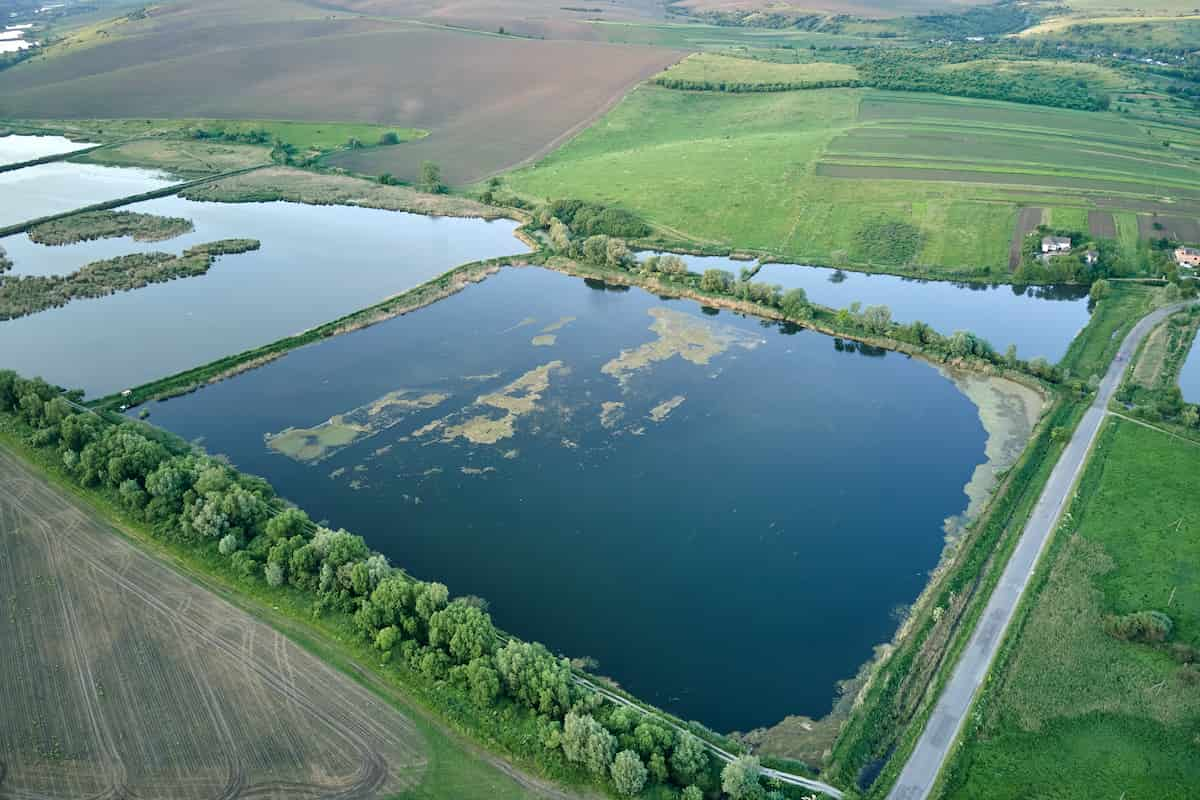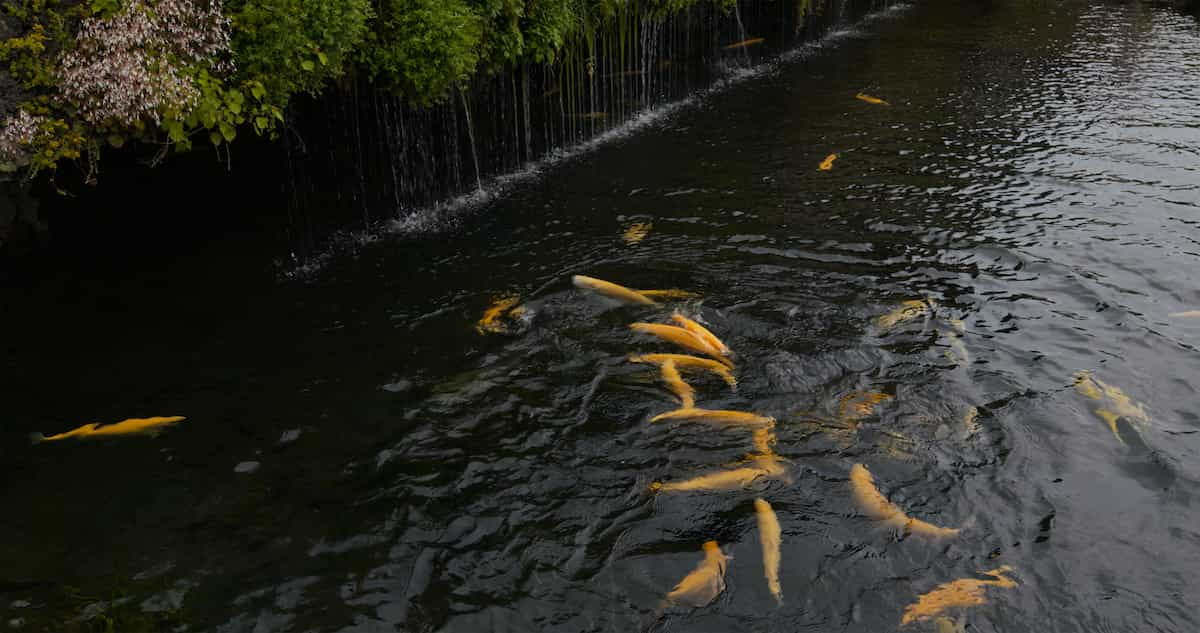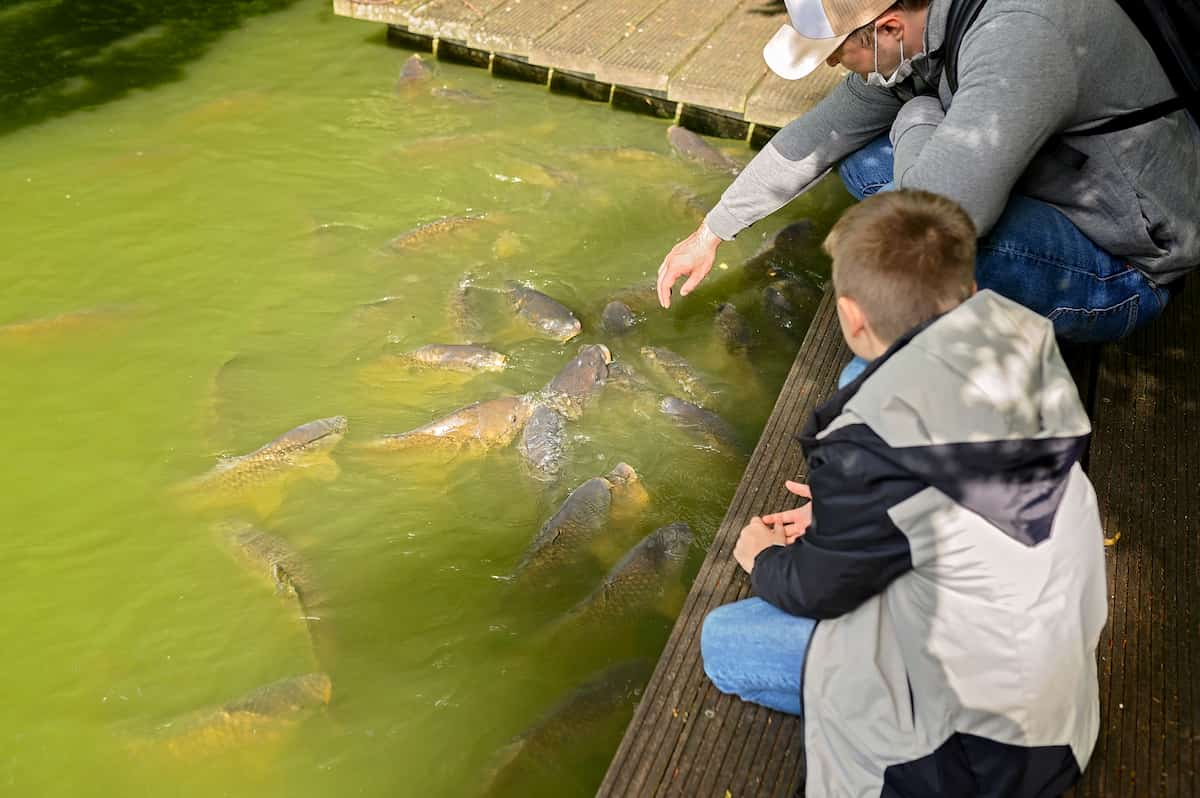Fish ponds are an excellent source of water and nutrients for agricultural purposes. Using fish pond water for irrigation can significantly improve crop yield and quality, reduce the cost of fertilizers, and conserve water resources. This article will discuss how to tap fish pond water for irrigation and nutrient supply in agriculture.

How to Tap Fish Pond Water for Irrigation and Nutrient Supply in Agriculture
Assess the Water Quality
Before using fish pond water for irrigation, it is essential to assess the water quality. Water quality can vary depending on factors such as the type of fish in the pond, the amount of feed used, and the presence of pollutants. It is recommended to have the water tested by a certified laboratory to determine its quality. The test results will provide information about the levels of nutrients, pH, and any contaminants present in the water. Based on the test results, you can determine the appropriate measures to ensure the water is safe for irrigation and does not harm the crops.
Use a Suitable Pump
To tap fish pond water for irrigation, you need a pump that can handle the volume and lift required for your irrigation system. Different types of pumps are available, such as centrifugal pumps, submersible pumps, and turbine pumps. The type of pump you choose will depend on the depth of the pond, the distance to the irrigation site, and the amount of water needed. It is recommended to consult an expert to help you choose the right pump for your needs.
Install a Filter
Fish pond water may contain solid particles such as fish waste, uneaten feed, and algae. These particles can clog your irrigation system and reduce its efficiency. To prevent this, installing a filter to remove the solid particles from the water is essential. Different types of filters are available, such as sand filters, cartridge filters, and screen filters.
Determine the Irrigation Schedule
When using fish pond water for irrigation, it is essential to determine the irrigation schedule based on the crops’ water needs. The water required will depend on crop type, soil type, and climate conditions. Using a soil moisture sensor is recommended to determine when to irrigate and how much water to apply. This will help you avoid overwatering or underwatering the crops, which can lead to reduced yield and quality.
Monitor Nutrient Levels
Fish pond water is rich in nutrients, which can benefit plant growth. However, excessive nutrient levels can lead to water pollution and harm aquatic life. It is essential to monitor the nutrient levels in the water to ensure that they are within the acceptable range. This can be done by testing the water periodically for nutrients such as nitrogen, phosphorus, and potassium. Based on the test results, you can adjust the fertilizer amount and the irrigation schedule to ensure that the nutrient levels remain within the desired range.
Prevent Water Loss
Water loss can occur during the transportation and distribution of water from the fish pond to the irrigation site. To prevent water loss, it is essential to use pipes and fittings that are correctly sized and installed. It is also recommended to use drip irrigation systems, which can reduce water loss due to evaporation and runoff.
In case you missed it: Fish Farming Success Story: How This Aqua Farmer Turned into Millionaire

Dispose of Excess Water
The fish pond may overflow during heavy rainfall or periods of high water inflow. To prevent flooding and water pollution, it is essential to have a drainage system in place to dispose of excess water. The drainage system should be designed to prevent the release of contaminated water into nearby water bodies.
Benefits of Using Fish Pond Water for Irrigation
- Nutrient supply: Fish pond water is rich in nutrients such as nitrogen, phosphorus, and potassium, which are essential for plant growth.
- Water conservation: It is possible to decrease the number of freshwater resources used for irrigation by using the water from fish ponds, which is essential in many areas of the globe because freshwater resources are becoming increasingly limited.
- Cost savings: Using fish pond water for irrigation can reduce the cost of fertilizers, which can be a significant expense for farmers.
- Improved crop yield and quality: Fish pond water can provide a consistent source of water and nutrients for crops, leading to improved yield and quality.
Challenges of Using Fish Pond Water for Irrigation
- Water quality issues: Fish pond water can contain pollutants, such as heavy metals or pesticides, harming crops or the environment.
- Algae growth: If fish pond water is not managed correctly, it can lead to the growth of algae, which can clog irrigation systems and reduce their efficiency.
- Nutrient management: While fish pond water is rich in nutrients, excessive nutrient levels can lead to water pollution and harm aquatic life. Farmers must manage nutrient levels carefully to ensure they remain within the acceptable range.
- Infrastructure requirements: Using fish pond water for irrigation requires proper infrastructure, such as pumps, filters, and irrigation systems, which can be expensive to install and maintain.
In case you missed it: How to Start a Fish Hatchery Business: A Profital Fish Breeding Idea for Aqua Farmers

Conclusion
Tapping fish pond water for irrigation and nutrient supply in agriculture can effectively improve crop yield and quality while conserving water resources. Using fish pond water for irrigation can also have economic benefits, such as reducing the cost of fertilizers and increasing the productivity of the land. It also has the potential to be an effective strategy for promoting sustainable agriculture by lowering the use of artificial fertilizers and protecting the availability of water resources.
In summary, tapping fish pond water for irrigation and nutrient supply in agriculture requires careful planning, monitoring, and management to ensure that the water is safe for irrigation and does not harm the crops or the environment. With proper care and management, fish pond water can be an excellent source of water and nutrients for agricultural purposes, improving crop yield and quality while promoting sustainable agriculture.
- Feed Your Flock for Less: Top 10 Tips to Save on Chicken Feed
- Ultimate Guide to Ossabaw Island Hog: Breeding, Raising, Diet, and Care
- Hatching Answers: The Top 10 Reasons Your Chickens Aren’t Laying Eggs
- Eggs and Economics: Breaking Down the Cost of Raising Backyard Chickens
- Defend Your Greens: Proven Methods to Keep Iguanas Out of Your Garden
- Ultimate Guide to Cinnamon Queen Chicken: A Comprehensive Guide for Beginners
- Ultimate Guide to California Tan Chicken: Breeding, Raising, Diet, Egg-Production and Care
- Ultimate Guide to Marsh Daisy Chicken: Breeding, Raising, Diet, and Care
- 10 Types of Chicken Farming Businesses You Can Start for Profits